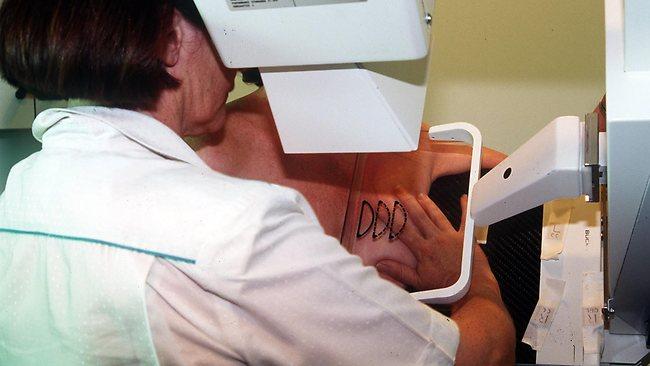Major class action looms after BreastScreenSA missed cancers
ANOTHER nine women have this morning contacted Adelaide law firm Tindall Gask Bentley, which plans a class action lawsuit over SA's breast cancer screening scandal.

ANOTHER nine women have this morning contacted Adelaide law firm Tindall Gask Bentley, which plans a class action lawsuit over SA's breast cancer screening scandal.
The State Government is facing one of its biggest class actions following revelations that 72 potentially detectable breast cancers were missed and two women died.
Tindall Gask Bentley is yet to ascertain if the women are among the 72 who had breast cancers missed by BreastScreen SA.
The law firm said a total of 70 women had now been in contact, at least 34 of whom were among the 72.
The cancers were missed during BreastScreen SA's two-year changeover from analogue to digital mammography.
A report into the review of 53,104 mammograms found the settings and methods used to read the digital images resulted in fewer women being recalled for further testing.
Adelaide law firm Tindall Gask Bentley has said the review strengthens the potential for a class action against the state.
Health Minister Jack Snelling said he had not yet sought legal advice.
Fatal breast cancer cases among those missed
"On my reading of the report which has come out, there seems to have been some clear oversights and that's been admitted in this document," said TGB partner Tim White.
He said it was "extraordinary" that BreastScreen SA had allowed for a "learning curve" during the transition from analogue to digital.
"Whether it's a class action or individual claims, the women that we've talked to are very interested in pursuing their entitlements," he said.
Legal action could cost the State Government millions of dollars.
Women could be entitled to costs for treatment, medication, surgery, ongoing medical reviews as well as lost time from work and physical and psychological effects.
A statistical anomaly forced the review of the 53,104 digital mammograms for women who were initially screened between September 6, 2010, and June 30 last year.
A further 570 women were recalled for further assessment and from those, the 72 women with potentially detectable cancers were identified and contacted.
Mr White said medical experts would now be consulted.
"A delay of 12 months, 18 months in diagnosis I would expect could have a considerable impact on a person's prognosis," Mr White said.
"If the medical evidence indicates that that delay is significant, then I would expect that that person would be entitled to some legal remedy."
He said it could take some time for any legal action to begin because the outcomes for each woman would need to be considered.
One woman whose cancer had metastasised had contacted the law firm, but Mr White said he had not been in contact with the families of either of the women who died.
They missed my cancer - don't let it happen again
BreastScreen SA clinical director Associate Professor Gelareh Farshid said one of the women who died had a detectable advanced stage cancer, but the cause of death of the other woman, who was elderly, could not be confirmed.
She said a death-matching process was part of quality control procedures, which was how she was aware of the women's deaths.
Professor Farshid said there was "no possibility at all" the woman who was confirmed to have died from breast cancer could have been saved.
"In this instance we do not believe the very short delay in diagnosis would have made any difference," Professor Farshid said.
She said digital mammography remained the best method of detection for breast cancer, and that detection rates had since increased to expected levels.
The review found no fault with the screening technology but recommended that future screening "be carried out at an increased radiation dose" to improve the image quality.
Mr Snelling yesterday apologised to all women affected, saying he assumed full responsibility and regretted any anxiety it had caused women and their families.
"Our priority has always been to ensure that those women who require treatment receive the right care as soon as possible," he said.
Mr Snelling said the State Government had not yet sought legal advice on the matter, but expected an adequate insurance policy was in place. "If there is some liability then we will be a model litigant," he said.
"It's very early days and my first priority is for these women who have been affected."
Australian Institute of Health and Welfare data shows about 55 per cent of South Australian women aged 50-69 participated in screening.
The review, conducted by NSW BreastScreen Associate Professor Lee, says the lower detection rates under digital technology were "a most unexpected outcome".
"Digital mammography has been shown to have comparable if not better cancer detection rates," the report says.
It found the "discontinuity" during the transition period, left "less opportunity to transition easily to the digital reading environment", while the technology was not at fault.
Women can call BreastScreen SA on 13 20 50 to make an appointment. The report can be found here.
